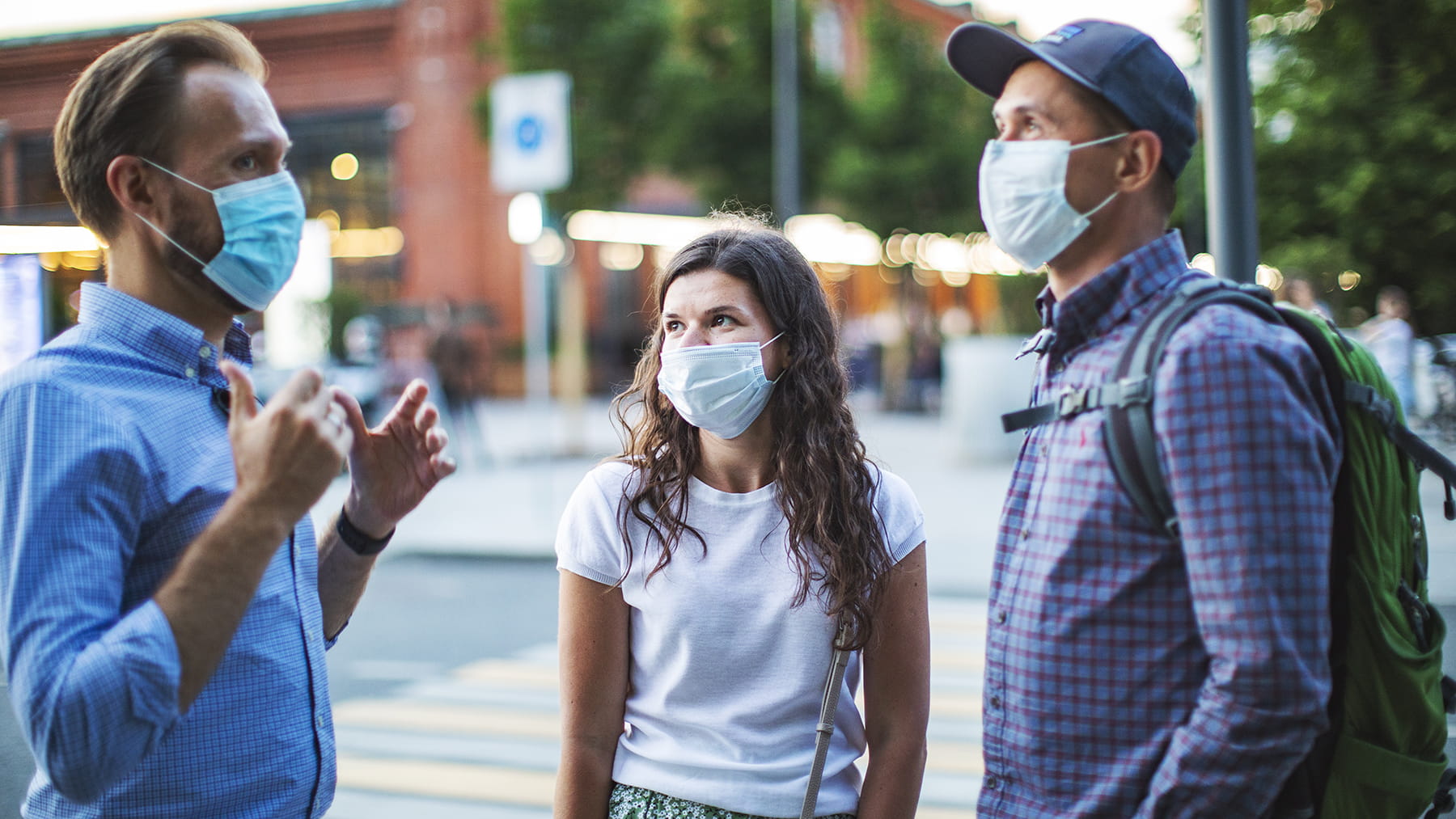How to talk to unvaccinated friends and family about the COVID-19 vaccine
Communication tips when you're vaccinated and they're not

Editor’s note: As what we know about COVID-19 evolves, so could the information in this story. Find our most recent COVID-19 blog posts here, and learn the latest in COVID-19 prevention at the Centers for Disease Control and Prevention.
Vaccinations have become a contentious topic among some family members and friends.
As a scientist and health care provider, I support vaccination. And what a remarkable thing science has done by creating a safe and effective vaccine within one year. More remarkable still, more than 74% of U.S. adults received at least one shot within just a few months.
Not everyone is as enthusiastic about COVID-19 vaccination. However, there are ways to have conversations with your more skeptical loved ones without spiraling into an argument or heated debate.
Here are a few strategies for how to talk about the vaccine.
Focus on the benefits — not just for self, but for others
Some people who’ve already recovered from COVID-19 may argue that they don’t need the vaccine. This is a common claim among younger people.
In this scenario, one strategy is to discuss the benefits of getting vaccinated. Many businesses require unvaccinated people to wear masks inside their establishments. Some companies are issuing vaccine mandates; for example, all faculty and staff at The Ohio State University Wexner Medical Center must be vaccinated against COVID-19 unless they have an approved exemption. A handful of cities are also beginning to mandate vaccines before people are allowed to enter a restaurant, teach school or attend social events like concerts.
You can also discuss benefits on a larger scale and appeal to their altruism. Receiving a COVID-19 vaccine is something each of us can do to help protect not only ourselves, but our families, our friends, our co-workers and our communities.
Related:
Ask questions to overcome barriers
If someone you love hasn’t been vaccinated, it’s OK to ask them questions. It’s also important to avoid passing judgment. Don’t assume that just because someone hasn’t had the COVID-19 vaccine that they’re against vaccination in general, or that they subscribe to conspiracy theories. “Why haven’t you been vaccinated yet? What’s getting in the way?”Perhaps it’s challenging for them to fit an appointment into their schedule, or they’re afraid they’ll have to take time off work due to side effects. Ask them how you can help: Offer to babysit their children, drive them to the appointment or be available to support them if they have symptoms after the shot.
For those who are more suspicious about the vaccine, ask motivational questions to inspire a productive dialogue. For example, if someone says they’re concerned about long-term side effects, don’t just tell them they’re wrong. Instead, ask what specifically gives them pause. What would convince them to get the vaccine? How much time do they need, or how many other people need to be vaccinated before they’d feel more comfortable getting it themselves? Then you can provide them with the kinds of facts they need to help put them at ease.
Related:
Counter misinformation
Unfortunately, this subject has become highly politicized. It’s all right to highlight the ways in which misperceptions about the COVID-19 vaccines have been sensationalized in the media.It’s important to respect the other person’s opinion and not become emotional. An aggressive approach will only escalate the situation and make the other person feel defensive. A better approach would be to highlight the ways in which getting vaccinated is consistent with someone’s values — protecting those they love and contributing to their community in a positive way.
Information about the vaccine's efficacy is readily available. Your loved ones can easily find this data on their own, but you can always repeat the facts and frame them in ways that resonate.
Be honest about your own experience
You can talk about the ways in which getting the vaccine was a positive experience for you — how it put your mind at ease and that it makes you feel better knowing that even if you get infected now, the odds of getting seriously ill and requiring hospitalization are dramatically lower.It’s also OK to share your own feelings and concerns about what their unvaccinated status means for you. Explain that, as the weather turns cold and family gatherings have to move inside, it would make you feel more comfortable if they were vaccinated. This is especially important for families with young children who aren’t yet eligible to get the shot.
If this family member or friend still refuses, you’ll have to make some difficult decisions. Don’t use their vaccine status in a threatening way, but you might have to tell them that socializing is only an option outdoors or virtually, depending on your comfort level.
It’s unlikely that you’ll change someone’s mind in one conversation. You also don’t want to instigate a problem that damages the relationship. It’s a tough balance, but having successive conversations, where you express genuine care for the other person, is the healthiest way to talk to your loved ones about getting the COVID-19 vaccine.
Kristen Carpenter is chief psychologist in the Ohio State Wexner Medical Center Department of Psychiatry and Behavioral Health.




